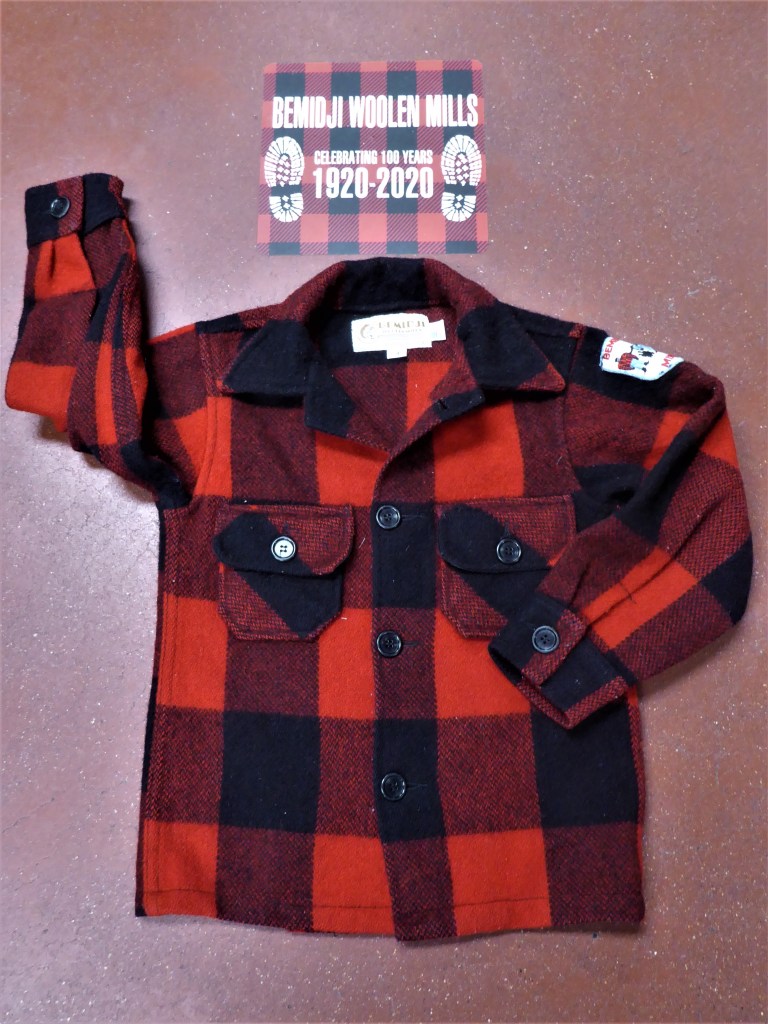Bemidji, Minnesota: Four Generations of keeping people warm
Published 11:00 am Thursday, November 24, 2022

- The red & black buffalo plaid jac shirt - a signature item of Bemidji Woolen Mills - is available in sizes 2 thru 52.
During a September journey to North Dakota, we scheduled a two-night stop in Bemidji, Minnesota, a community of 16,000 hardy souls residing 218 miles northwest of Minneapolis.
Bemidji is a charming college town hugging the southwest bank of the large lake after which it is named. What a delightful place for a couple of Southerners to visit in the early fall. Winters, with an average January nighttime temperature of minus 2 degrees would be an entirely different matter. We’re talking serious cold here.
With the bitter cold of northern Minnesota winters, you can rest assured Bemidji households have their closets and basements crammed with cold-weather gear. Fortunately, as fall arrives and the foliage begins exhibiting its colors, town residents can walk a short distance and supplement their clothing stash. Four blocks from towering statues of Paul Bunyan and Babe, the blue ox, is Bemidji Woolen Mills, a business in which the same family has manufactured and sold cold-weather gear for over a century.
During our visit to the mill and its retail outlet we met up with family member and current owner, Bill Batchelder, who proudly offered a brief history of the business. Ira Preston Batchelder, Bill’s great-grandfather, was proprietor of a general store in Bemidji when in 1920, he and son, Ira Hubert, purchased a woolen mill in another town and promptly moved it to their hometown.
With a ready source of wool from sheep raised in the area, the father and son started with a wool carding machine and picker to pull apart and comb the wool to make quilt batting, later adding a yarn spinning machine to make wool yarn and socks. They specialized in wool blankets and later, quality outdoor woolen apparel for loggers in the surrounding area.
Bill Batchelder joined the family business in 1972 under the guidance of his grandfather, father and uncle. The grandfather continued to work until his death in 1992 with Bill and his brother Bob taking over the business three years later. Bill commented that nearly every fourth-generation family member has worked in the business. During its heyday the mill employed 40 full-time and several part-time workers. Currently, he has 16 employees, not all of whom are full-time.
Bemidji Woolen Mills continues to make wool quilt batting in the same manner as in 1920. Bill commented the firm’s mittens sell by the thousands, but the best-selling item continues to be its jac shirts (heavy shirts often used as jackets) in lumberjack, or, buffalo plaid that are available in sizes 2 to 52.
Moving to the building’s sewing area the CEO demonstrated his skill operating two of the firm’s machines, one that creates and sews button holes and another that sews buttons onto shirts and jackets. Here we met Natalya Trett who was at work crafting a blue and black jac shirt. Originally from Ukraine, Natalya has been employed at the mill for over 20 years. She is now proud to work with her two sons who recently emigrated from Ukraine.
We had assumed the Bemidji store sold only products made by the firm, but Bill’s grandfather decided long ago it would be good for the business to also sell other high-quality merchandise alongside their own products. We should have realized when browsing through the retail area that no company this size would be able to manufacture so many different items. Products from other manufacturers include Pendleton blankets, Dale of Norway sweaters and Red Wing boots. Minnesota’s famed wild rice and local craft items are also available. Mary Morton, Bill’s aunt, is employed in the store and is one of the local crafters of rosemaling, a decorative Norwegian folk-art painting. Her paintings and jigsaw puzzles featuring her paintings are sold in the store.
Bill related the same families shop at the store year-after-year with the sixth-generation of summer visitors now arriving. We were approached by a shopper who said with a smile, “Bemidji Woolen Mills is the only place to buy clothes to keep you warm.” The customer, Janet Thompson, with arms full of mittens and a hat must have overheard our conversion. She said her first memory of the store was at age five when she visited with her mother. Thought living elsewhere, Janet continues to patronize Bemidji Woolen Mills. Bill said he frequently hears similar stories.
According to an old adage, “the first generation starts a business, the second generation grows the business and the third generation ruins the business.” It is refreshing to find the fourth generation successfully guiding Bemidji Woolen Mills for the upcoming fifth generation.
Kay and David Scott are authors of “Complete Guide to the National Park Lodges” (Globe Pequot). They live in Valdosta, Georgia. Visit them at blog.valdosta.edu/dlscott



